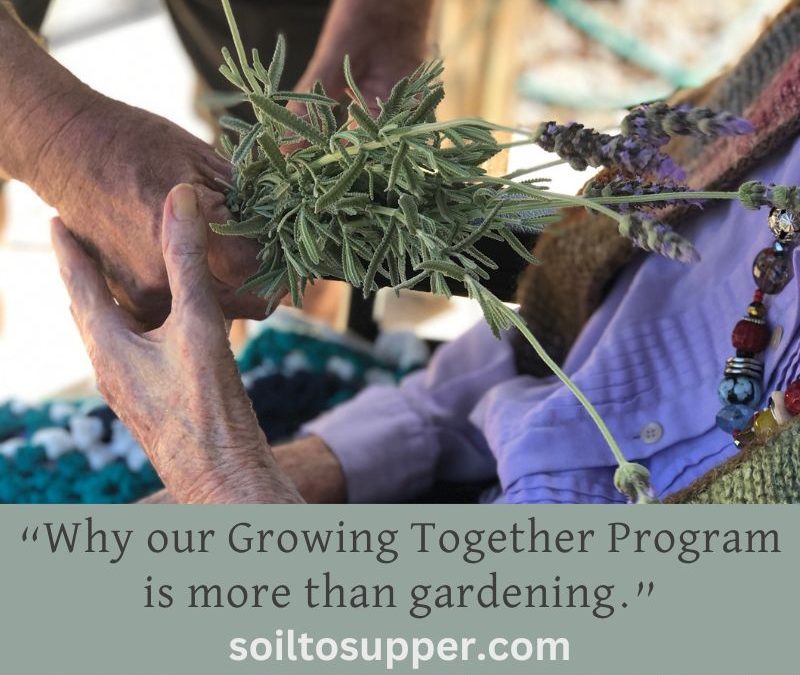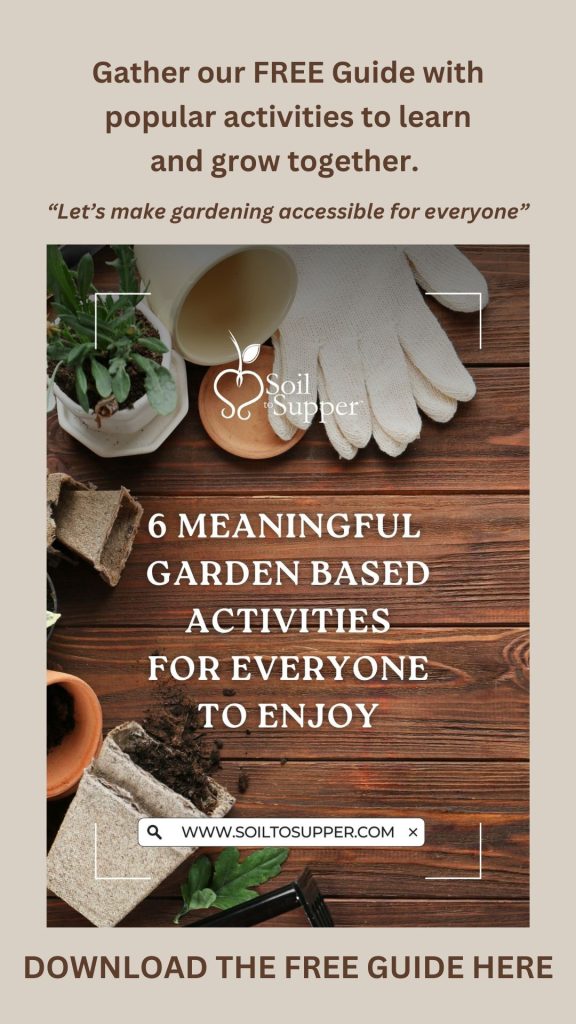Most gardeners understand the enjoyment and satisfaction from spending time in the garden, tending to plants, digging the earth and harvesting delicious homegrown food to share with others.
When these experiences are not available or are taken away, the feelings of loss can take the place of the good feels cultivated in the garden.
As individuals transition into care, outdoor spaces can become limited, especially in a memory support unit. For many residents of aged care homes, particularly those who were active within their community and keen gardeners in their own homes, this can lead to loneliness and have a negative effect on their overall health and wellbeing.
Being in an environment where people have limited access to the outdoors, unable to enjoy gardening activities with like-hearted friends and a general lack of nutritious fresh food, can lead to social isolation, depression, anxiety, confusion, stress, and other impacts on emotional and physical wellbeing.
In her book ‘The Well-Gardened Mind,’ Sue Stuart-Smith (2020) discusses the concept of ‘people growing’ (p. 166) as she shares models of programs to combat loneliness due to ‘large parts of the world’s population living in a state of disconnection.’
Through a connection with nature and regular participation in group gardening activities, participants experience improved physical and emotional health, an increase in social interaction, motivation, self-esteem and improved positive habits.
Gardens within aged care homes and health care not only offer a safe space to enjoy fun, hands-on activities and form connections with others, but also provide opportunities for growing fresh, nutrient-packed food onsite to be included in meals.
The Greening Dementia Research, Natural England Commissioned Report (NECR137), provides valuable insights into the benefits and barriers faced by people living with dementia in accessing the natural environment and local greenspace.
The findings show the increasingly acknowledged positive impact of nature on both physical and mental health. While specific evidence for the benefits of nature for people with dementia is often qualitative, general conclusions highlight a range of positive outcomes.
These include improved emotional wellbeing with reductions in stress, agitation, anger, apathy, and depression.
Additionally, access to the natural environment is associated with enhancements in physical health, including improvements in skin health, fitness, sleeping patterns, and eating habits.
Also noted, people with dementia may experience better verbal expression, memory, attention, and heightened awareness through multi-sensory engagement, fostering a sense of joy.
The research also points to improvements in overall wellbeing, independence, self-esteem, control, social interaction, and a strengthened sense of belonging, emphasising the holistic benefits of connecting with nature for those living with dementia.
With the understanding that we all need to experience a regular connection with humans and nature (the term Biophilia explains this) we have developed the ‘Growing Together’ Program to support organisations to ensure everyone in care engages in interactive garden-based activities on a regular basis.
The term ‘Nature Prescription’ is gaining increased recognition in the UK as healthcare practitioners increasingly understand the advantages of integrating a connection with nature alongside conventional medical recommendations.
Nature possesses an abundance of healing properties, offering benefits to physical, emotional, and social wellbeing.
Individuals have the ability to ‘self-prescribe’ time spent in nature to promote overall health and wellbeing. But in a care setting, people rely on the organisation to schedule and facilitate activities and experiences on their behalf.
To support organisations, we have developed a program that offers weekly sessions led by our qualified team.
These sessions aim to guide and support residents to participating in engaging activities with simple methods accessible to all abilities and customised to suit the need of individuals.
Sessions are held in a safe garden setting and include interactive garden-based activities with simple techniques, information and guidance to grow fresh food, learn skills, rediscover hidden gardening skills, encourage social connections and enhance health.
Feedback from the program includes:
“The program is contributing to the active participation of residents in hands-on activities”.
“Great to see the progress and interactions of the residents”.
“A positive impact in the lives of our residents”
With the understanding that:
- a regular connection with others in nature cultivates social interaction, good health and wellbeing,
- gardens can be established in any care setting, and
- people from all walks of life benefit from time in the garden with others,
please contact Soil to Supper to discuss ways we can support you and your residents in enjoying time ‘Growing Together’.
For more information on programs please visit https://soiltosupper.com/therapeutic-gardening-program/
Or email Cath – cath@soiltosupper
Programs are delivered nationally within Australia to aged care, retirement communities and community organisations.
We look forward to supporting you into the garden.




